Learn about the conference chairs and organizing committee responsible for programming for the 2020 APS Integrative Physiology of Exercise conference. This webpage will be updated periodically as we receive bios.
 Scott Trappe, Co-Chair
Scott Trappe, Co-Chair
Ball State University, Muncie, Ind.
Scott Trappe, PhD is the Director of the Human Performance Laboratory and John and Janice Fisher Endowed Professor of Human Bioenergetics at Ball State University. He received his undergraduate training at the University of Northern Iowa and was captain of the swim team. He worked for US Swimming at the Olympic Training Center in Colorado Springs while conducting his graduate (MS) studies at the University of Colorado. His PhD training was with Dr. David Costill at Ball State University and post-doctoral training in muscle physiology with Dr. Robert Fitts at Marquette University. For over 25 years, Trappe has been working with NASA to help optimize the exercise prescription for astronauts. Concurrent to the work with NASA, Trappe has conducted several NIH funded exercise training studies in older adults, aging athletes and various college and elite athletes. Trappe is currently a principal investigator for one of the human clinical centers in MoTrPAC, which is a nation-wide consortium to study the health benefits of exercise. Using a whole body to gene approach, Trappe and his colleagues have gained a better understanding of muscle plasticity and the powerful effects of exercise for health and performance. Trappe has mentored numerous trainees (post-doctoral, doctoral and master’s students) over his career. Trappe is a fellow of the American College of Sports Medicine and member of the American Physiological Society and the American Association for the Advancement for Science.
 Todd Trappe, Co-chair
Todd Trappe, Co-chair
Ball State University, Muncie, Ind.
Todd Trappe, PhD received a BS degree from the University of Iowa and a MS degree from the University of Colorado while working at the International Center for Aquatic Research, part of United States Swimming and the Olympic Training Center in Colorado Springs. He completed a PhD at the Human Performance Laboratory at Ball State University and a post-doctoral fellowship at the Noll Physiological Research Center at Penn State University. Including his doctoral dissertation work under David Costill, PhD, Trappe has been conducting research with NASA for the last 25 years on the role of exercise in astronaut health, with a focus on skeletal muscle and the cardiovascular system. Trappe has also been funded by the NIH to study the role of exercise in aging skeletal muscle health. Trappe is currently a co-investigator for MoTrPAC (Molecular Transducers of Physical Activity Consortium), a NIH nationwide study on the health benefits of exercise. Trappe has mentored numerous trainees (post-doctoral, doctoral and master’s students) over the last 20 years. Trappe is a 25 year member of the American Physiological Society and 28 year member (and fellow) of the American College of Sports Medicine.
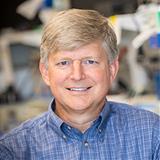 P. Darrell Neufer, Past Chair
P. Darrell Neufer, Past Chair
East Carolina University, Greenville, N.C.
Darrell Neufer, PhD, is the Director of the Diabetes & Obesity Research Institute and Professor of Physiology, Brody School of Medicine at East Carolina University. During the early phase of his career, his laboratory investigated the mechanisms underlying the regulation of gene expression in response to acute and chronic exercise, working closely for several years with the Copenhagen Muscle Research Centre in Denmark. For the past 15 years, his research program has focused on the role of mitochondrial bioenergetics in metabolic health and disease. He currently leads an internationally recognized biomedical research institute active in diverse fields of metabolism including diabetes, lipid metabolism, cardiovascular disease, cancer, reproductive biology, skeletal muscle biology and exercise. He has been continuously funded by NIH, has served on over 60 national and international grant review panels and committees, including as Chair of the two previous Integrative Biology of Exercise meetings in 2012 and 2016, and is currently a member of the NIH’s Advisory Board for MoTrPAC.
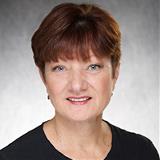 Sue Bodine
Sue Bodine
University of Iowa Carver College of Medicine, Iowa City
Sue Bodine is a Professor of Medicine at the University of Iowa Carver College of Medicine. Her current research is focused on the study of the neuromuscular system and its response and adaptation to various stressors, including exercise, disuse and aging. She has been an APS member since 1989 and a Fellow since 2017. She has served as Associate Editor for three APS journals (AJP—Endocrinology and Metabollism, AJP—Cell Physiology and Journal of Applied Physiology) and is currently Editor-in-Chief of the Journal of Applied Physiology and on the editorial board of the review journal, Physiology. She has been an active member of the Environmental and Exercise Physiology section, serving as a councillor from 2013-16. She has served as an NIH study section member and Chair of the Skeletal Muscle and Exercise Physiology panel and currently serves on the Aging Systems and Geriatrics panel. In 2019 she was elected to be a Councillor of the American Physiological Society.
 Edward Coyle
Edward Coyle
The University of Texas at Austin
 Lynette Craft
Lynette Craft
American College of Sports Medicine (ACSM), Indianapolis

Matthew Fedoruk
U.S. Anti-Doping Agency, Colorado Springs
Matthew Fedoruk currently works as the Chief Science Officer at the U.S. Anti-Doping Agency (USADA). With more than 10 years of experience in anti-doping and a PhD in Pathology and Laboratory Medicine, Fedoruk also serves as a standing member of the IPC Anti-Doping Committee, the WADA TDSSA Expert Group Chair and Athlete Biological Passport (ABP) Ad-Hoc Working Group. Before joining USADA, Fedoruk worked at the Canadian Centre for Ethics in Sport (CCES) and served with the Vancouver 2010 Organizing Committee for the 2010 Olympic and Paralympic Winter Games in Canada. He currently lives in sunny Colorado Springs, Colorado, which is also known as ‘Olympic Town USA’ for being home to the U.S. Olympic Committee, the high-altitude Olympic Training Center, numerous national sport federations and USADA.
 James Fluckey
James Fluckey
Texas A&M University, College Station
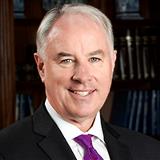
John Kirwan
Pennington Biomedical Research Center, Baton Rouge, La.
John Kirwan is Executive Director of LSU’s Pennington Biomedical Research Center and holds the George A. Bray, Jr. Endowed Super Chair in Nutrition. He also leads the Integrated Physiology and Molecular Metabolism Laboratory at Pennington Biomedical and is the Director/Principal Investigator of the Louisiana Clinical and Translational Science Center.
Kirwan’s professional expertise includes almost 30 years of research, teaching, and service in the obesity and diabetes fields. He leads an internationally acclaimed biomedical research program focused on diabetes, obesity, nutrition and exercise. He is currently PI or Co-Investigator on 10 NIH grants, and to date he has generated over $50m in research funding most which has come from the US National Institutes of Health, and the food, pharmaceutical, and medical device industries. He has published over 200 scientific papers related to metabolism and nutrition in prestigious peer-reviewed journals including the New England Journal of Medicine, JAMA, American J. Clinical Nutrition, Diabetes and Diabetes Care. Among his most important research achievements is the discovery that for a significant number of patients, diabetes can be cured by surgically altering the physiology of the intestine and stomach.
 William Krauss
William Krauss
Duke University, Durham, N.C.
 Bente Klarlund Pedersen
Bente Klarlund Pedersen
Rigshospitalet and University of Copenhagen, Denmark
Bente Klarlund Pedersen, MD MDSc, is Professor of Integrative Medicine and a specialist in infectious diseases and internal medicine. She is the Director of 1) Centre of Inflammation and Metabolism (CIM) and 2) Centre for Physical Activity Research (CFAS) funded by TrygFonden (http://aktivsundhed.dk). She has supervised 47 PhD projects and been a mentor of 6 doctoral theses.
The research group has identified skeletal muscle as an endocrine organ that produces and releases so-called “myokines”. The identification of myokines provides a conceptual basis for understanding how muscles communicate with other organs. Through translational research, the aim is to develop targeted exercise training regimes for specific disease groups by applying a translational strategy: “from bedside to bench and back”.
BKP has had many positions of trust and is a member of the Royal Danish Academy of Sciences and Letters. BKP has more than 650 scientific publications, > 43.000 citation and her “H”-index is 110 (Web of Science).
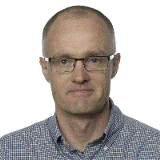 S. Peter Magnusson
S. Peter Magnusson
Institute of Sports Medicine Copenhagen and IOC Research Center Copenhagen, Denmark
S. Peter Magnusson is currently a professor at University of Copenhagen at The Faculty of Health Sciences. He is the head of the Musculoskeletal Rehabilitation Research Unit, and a group leader at the Institute of Sports Medicine Copenhagen at Bispebjerg Hospital in Copenhagen, Denmark. His research focuses on gaining insight into the structure and function of tendons as it relates to i) force transmission on a macroscopic, microscopic and nanoscale level, ii) tendon adaptation to physical activity, inactivity, and ageing, and iii) responses to various forms of treatment of overuse and acute injuries of tendons.
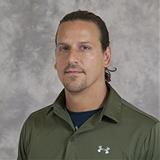
Scott Mazzetti
Salisbury University, Md.
Scott Mazzetti, PhD is a Professor of Exercise Science and Director of the Laboratory for Human Performance at Salisbury University. He received his BS and MS in Kinesiology at the Pennsylvania State University, and his PhD in Human Bioenergetics from the Human Performance Laboratory at Ball State University. His research interests include skeletal muscle metabolism and physiology, with emphasis on enhancing energy expenditure responses and adaptations for weight management. Mazzetti developed the Laboratory for Human Performance in 2007, and since then, the laboratory has helped prepare undergraduate students for careers in the Exercise Sciences, with special emphasis on research. He was an Assistant Professor at Anderson University in Indiana from 2004 to 2007, where he also developed and led a student-centered research laboratory. Mazzetti won the Research Mentor of the Year award in 2016 at Salisbury University and is a member of the American College of Sports Medicine.

Lori Ploutz-Synder
University of Michigan, Ann Arbor
Lori Ploutz-Snyder earned her BS and MS degrees in zoology (1989) and PhD in biomedical sciences (1994) from Ohio University. She conducted post-doctoral research at Michigan State in physiology and radiology specially developing muscle functional MRI techniques. In 1996, she joined the faculty of Syracuse University as an assistant professor in Exercise Science and rose to professor in 2008, while serving as the chair of the Department of Exercise Science from 2004-2008. She worked collaboratively at Syracuse and held joint appointments in Physical Medicine and Rehabilitation, Physiology and Neuroscience, and the Center for Policy Research. In 2008, she joined the NASA Johnson Space Center and University Space Research Association as NASA’s Lead Scientist for exercise physiology and countermeasures. In this role she was responsible for NASA’s research portfolio for the preservation of cardiovascular, skeletal muscle and bone health during long duration spaceflight. In 2013, she was appointed as a musculoskeletal alterations team leader at the National Space Biomedical Research Institute at Baylor College of Medicine. In July 2016, she was appointed Professor of Movement Science and Dean of the School of Kinesiology at the University of Michigan.
Professor Ploutz-Snyder’s research focuses on skeletal muscle physiology, the development and optimization of exercise programs for special populations and the integrative effects of exercise. This includes identifying targets for exercise intervention such as functionally relevant thresholds of muscle strength or aerobic fitness. She has worked with diverse populations ranging from athletes and NASA astronauts to frail elderly, stroke survivors, children with cerebral palsy and adults with Down Syndrome.
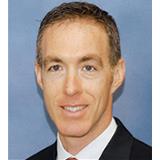 John Quindry
John Quindry
University of Montana, Missoula
John C. Quindry, PhD, FACSM, FCVS-APS, Professor and Chair, School of Integrative Physiology and Athletic Training, College of Health, University of Montana, Missoula, MT 59812

Leanne Redman
Pennington Biomedical Research Center, Baton Rouge, La.
Leanne M. Redman, PhD, FTOS, is a Professor in the Division of Clinical Sciences at Pennington Biomedical Research Center. She is an expert in energy balance phenotyping and well known in the fields of obesity, lifestyle intervention and energy metabolism. Redman directs the Reproductive Endocrinology and Women’s Health laboratory. Her lab conducts research in pregnant women, and is currently performing studies of developmental programming in mother-infant dyads to understand the maternal influences on offspring energy metabolism, eating behavior and weight gain. She has published more than 175 research articles, reviews and book chapters around energy metabolism, insulin sensitivity, obesity, calorie restriction, exercise and pregnancy.
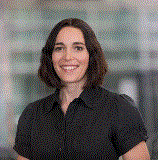
Jessica Scott
Memorial Sloan Kettering Cancer Center, Manhattan, N.Y.
Jessica Scott, PhD, is an Assistant Member in the Exercise Oncology Service at Memorial Sloan Kettering Cancer Center. She received her PhD in Exercise Cardiovascular Physiology at the University of British Columbia in Vancouver, Canada, and completed her Post-doctoral Fellowship at NASA Johnson Space Center (JSC) in Houston, Texas. She joined MSK in 2017 after 5 years as a Senior Scientist in the Exercise Physiology and Countermeasures Laboratory at JSC. Her research is focused on: (1) characterization of multisystem toxicity using exercise testing, imaging, and biomarker techniques, and (2) the efficacy of exercise to prevent and reverse toxicity.
 Jane Senior
Jane Senior
American College of Sports Medicine (ACSM) Foundation, Indianapolis
Jane G. Senior, a graduate of Fairfield University, is the Executive Director of the American College of Sports Medicine Foundation. Prior to this appointment, she served as the AEVP of Research Administration for the College. Jane is key liaison to ACSM's Science Integration & Leadership Committee, Clinical Sports Medicine Leadership as well as Research Review, the Foundation's study section. She was recently appointed to the ACSM staff Leadership Circle, reporting to the CEO. Key liaison to ACSM's IPE conferences since 2006, Jane helped launch ACSM's inaugural IPE conference, chaired by George Brooks and co-chaired by Scott Powers. She has been with ACSM for the past 21 years.
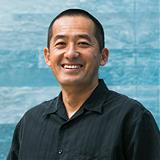
Hirofumi Tanaka
The University of Texas at Austin
Hirofumi Tanaka is a Professor and the Director of the Cardiovascular Aging Research Laboratory at the University of Texas at Austin. He received a BA in physical education/martial arts at the International Budo (Martial Arts) University in Japan, a MS in human bioenergetics from Ball State University, and a PhD in applied physiology from the University of Tennessee. He completed his postdoctoral fellowship in cardiovascular physiology at the University of Colorado at Boulder. Tanaka's research interests revolve around vascular aging that manifests as the stiffening (hardening) of large elastic artery and vascular endothelial dysfunction. A variety of topics that encompass the physiological mechanism that mediate vascular aging, sequel or consequences of aging-related vascular dysfunction such as cognitive dysfunction, and lifestyle modifications that prevent and reverse vascular dysfunction with aging are being investigated in his research laboratory.
Contact Us
APS Office of Scientific Meetings
844.526.1700

.jpg?sfvrsn=252e321b_4)